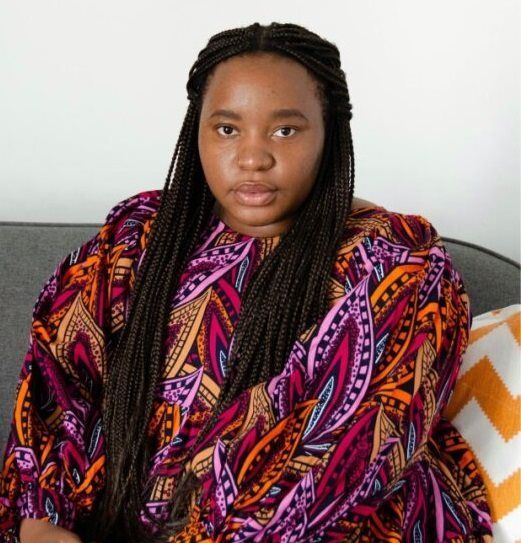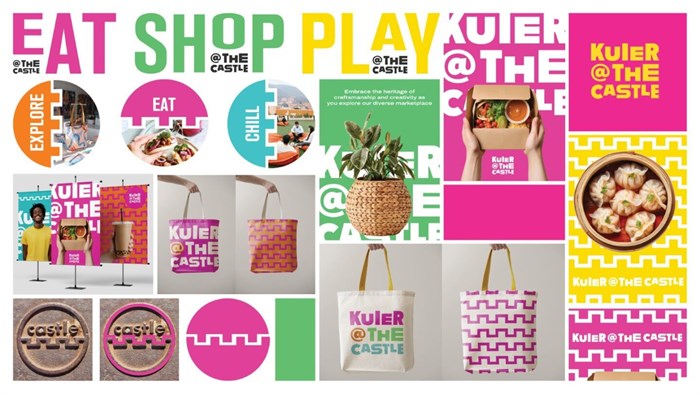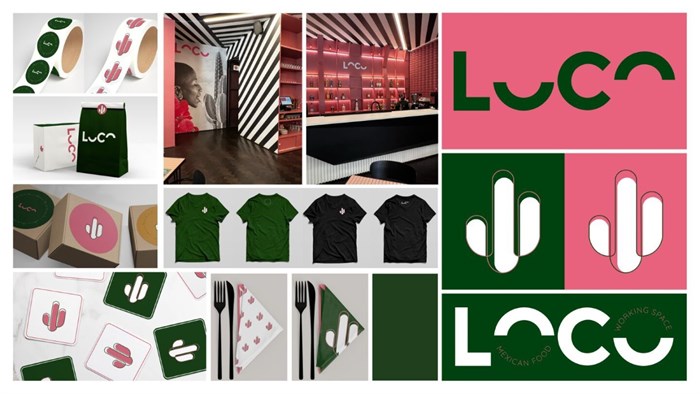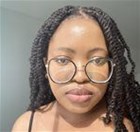Meet Lebo Masekela, a 26-year-old designer whose creative journey is as vibrant as her designs. Originally from Joburg and now based in Cape Town, Lebo's career at Wonder, an independent creative agency, has blossomed in just four short years.

Lebo Masekela is a designer at Wonder. Source: Supplied.
What inspired you to pursue a career in design, and how did your journey lead you to where you are today?
I have always been creative at heart. I used to be one of those little girls who used to cut up her clothes, stick some glitter glue and make “fashionable” outfits from the clothes I had. I wanted to venture into fashion design but in grade 10, I fell in love with photography. The following year I started doing my research on all the possible courses / institutions I could go to, to pursue a career in photography.
At that time there were no institutions that offered photography as a degree and that was what my parents wanted me to get - a degree. In my research, we came across Vega, went to one of the open days and one of the navigators there (a big shout out to her) advised me to explore a BA in graphic design. The course offered a module in photography, which is what I wanted, but ultimately it would give my parents the degree that they “wanted”. That’s how I ended up in design.
As a young, black, female designer, what unique challenges and opportunities have you encountered in the advertising and marketing industry?
I finished my degree end 2019, which meant the start to my career was hindered by Covid. I struggled to secure a proper job because of the effects of Covid despite having done really well in getting my degree. Not a lot of people were hiring, and those who were hiring wanted experience.

Some of Lebo's work for Kuier at the Castle. Source: Supplied.
I had to find creative ways to get into the industry which led me to freelancing. That was one challenge- but being a young, black, female creative in the market where there are a few people who look like me presented its own set of interpersonal challenges. I knew my work was good, but I always felt like I had to constantly prove myself because of this, which made me doubt if I should have even studied what I did. But through all this, I knew that my parents sacrificed so much to take me to the school they took me to, so I was going to believe in myself, in my work and put myself out there.
Can you share a memorable project or experience that has had a significant impact on your career or personal growth?
This would have to be working on the Loco Restaurant, that is based in Braamfontein. I was the creative pioneer behind the brand. I created, designed and art directed what the Loco Restaurant brand is today. This opportunity came about at a time when I was dealing with a lot of imposter syndrome. Could a young, black female like me met the expectations of a brand that needs to exist in one of the most culturally significant location in South Africa?

Lebo's work for Loco. Source: Supplied.
Deciding to shut the loud voice that was telling me I couldn’t, and rather listen to the small voice that told me that I could has been one of the most defining moments in my career, and since then no challenge seems too great when it comes to doing design work.
How do you infuse your cultural background and identity into your design work, and how does this influence resonate with your audience?
I don’t consciously infuse my cultural background and identity into the work I do, for me those two things influence how I interpret a brief or how I see things in the world and therefore my approach has influences from my background and identity. You won't overtly spot it but there is a style to my work that is uniquely me. I am one of those designers that lean towards a clean and simplistic design, and this has been informed by my background and who I am. So, when it comes to resonating with audiences it’s more about meeting the needs of the brief using my style of design.
In your opinion, what steps can the industry take to foster greater diversity and inclusion, particularly for young, black, female creatives like yourself?
That’s a good question! I think the first step is to believe in the young, black female creative like myself. I find that we constantly have to prove that we are good enough to be in every space we enter. We shouldn’t have to be extraordinary to simply be recognised.
The second step is to support our growth and development when we have entered into the industry. It’s disappointing to not have vast options for role models that look like me. Our career progression is not at the same pace as our counterparts. Young, black female creatives need to see more women that look like them do well in this industry.
Who inspires you?
My parents, Ntate Phakedi and Aus’ Puleng Masekela. Not only do they inspire me, but they also wholeheartedly support me in everything that I do (as long as it makes sense). My parents provided my sister and I with a life where we were always secure, they worked so hard to give us a good life. Their hard work and dedication has been the driving force behind my ambition. I honestly just want to make my parents proud. From a design point of view, outside of my lived experience I haven’t found a specific person or people that inspire me but hopefully I can be that for someone in the future.
What are some of your future career goals?
I want to have a creative studio that empowers young, black females. I think there is so much creativity amongst black youth that hasn’t been tapped into. I see so many creatives doing amazing work on TikTok, like I think TikTok has some of the best editors, but they never get the chance to work with brands for example.
The studio would be a place for creators to flex their talents. An ambition not related to design, however, is one day having my own café / cocktail bar. Ultimately the dream is to go as far as I can in my career as a designer. One day, the world will see the designs work I’ve created done.












































